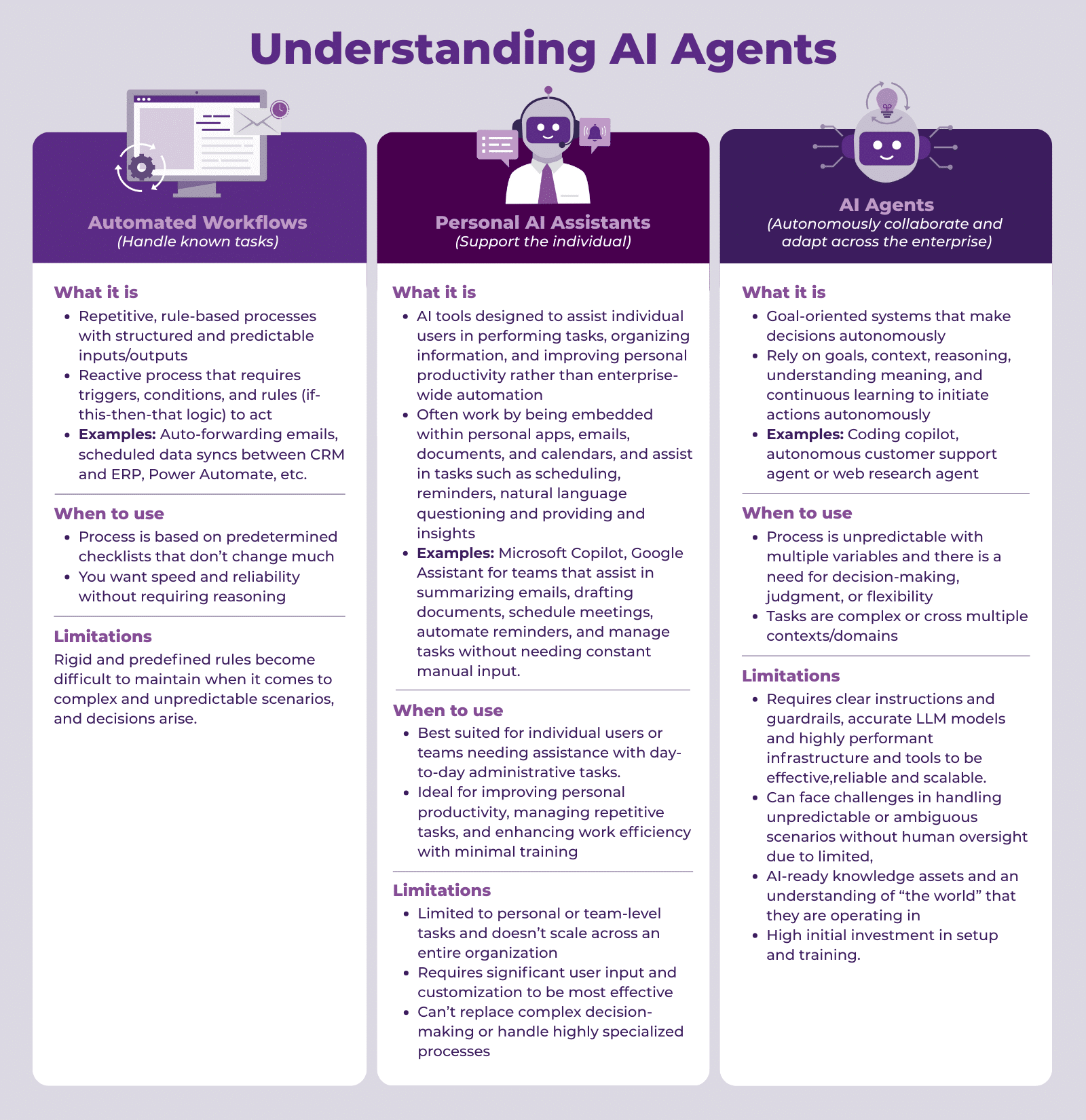When Should You Use An AI Agent? Part One: Understanding the Components and Organizational Foundations for AI Readiness

It’s been recognized for far too long that organizations spend as much as 30-40% of their time searching for or recreating information. Now, imagine a dedicated analyst who doesn’t just look for or analyze data for you but also roams the office, listens to conversations, reads emails, and proactively sends you updates while spotting outdated data, summarizing new information, flagging inconsistencies, and prompting follow-ups. That’s what an AI agent does; it autonomously monitors content and data platforms, collaboration tools like Slack, Teams, and even email, and suggests updates or actions—without waiting for instructions. Instead of sending you on a massive data hunt to answer “What’s the latest on this client?”, an AI agent autonomously pulls CRM notes, emails, contract changes, and summarizes them in Slack or Teams or publishes findings as a report. It doesn’t just react, it takes initiative.
